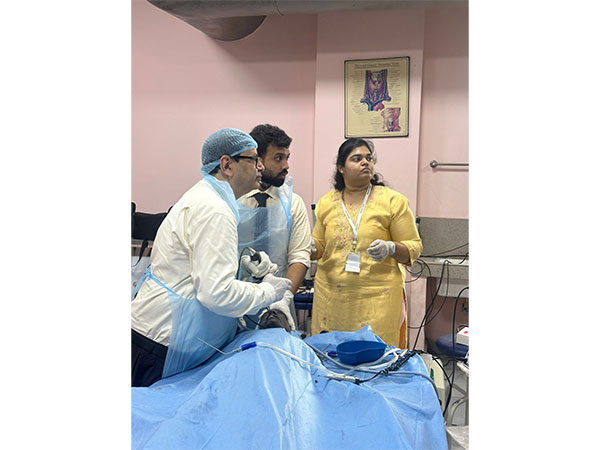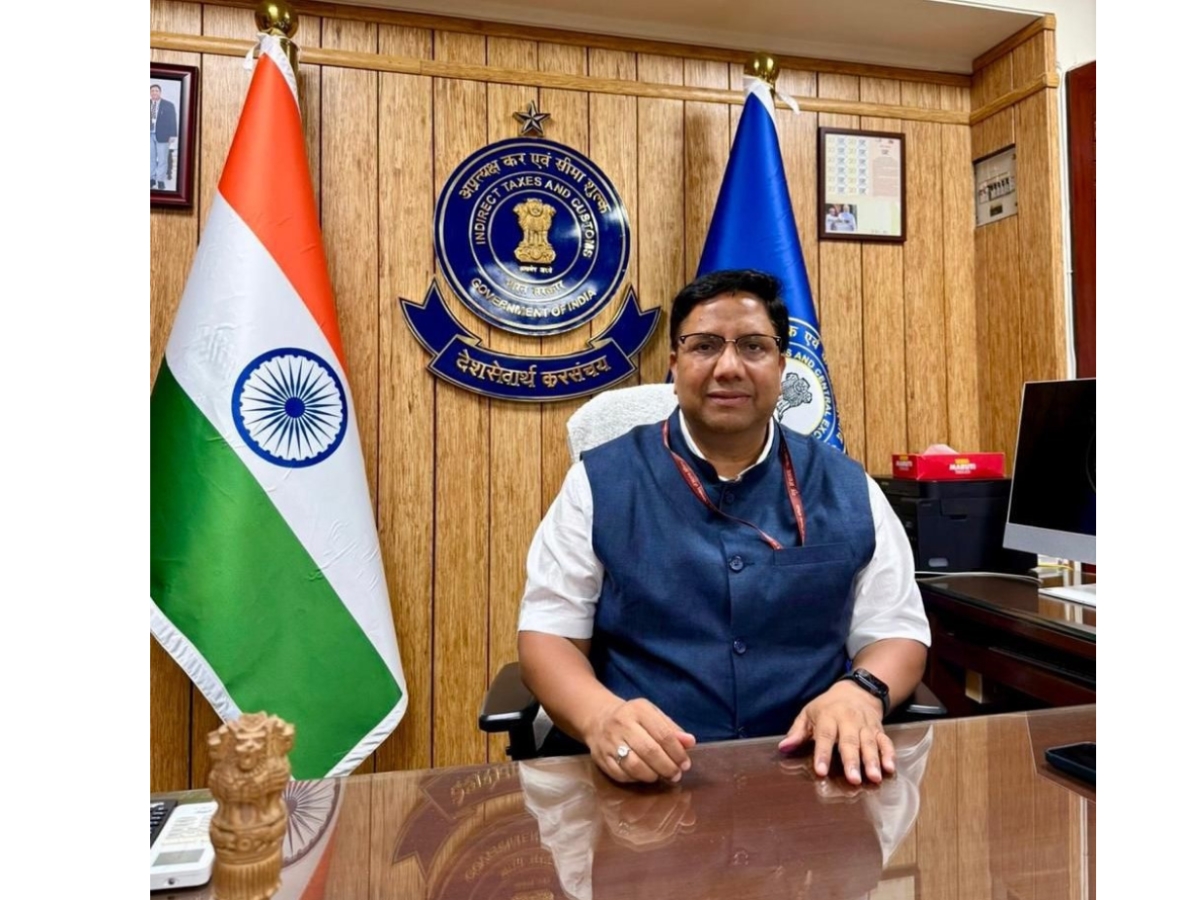
How diabetic vascular disease is becoming a cause of concern for Indians
Nov 25, 2021
New Delhi [India], November 24 (ANI/ATK): India has the world's second-largest diabetes population. According to estimates, India has 80 million diabetic patients, up from 40 million in 2007 and nearly doubling in 12 years. Here we decode the cause, symptoms, and other diseases that can worsen as a result of diabetes.
What is Diabetes?
Diabetes is a disease in which the body's blood glucose also known as blood sugar levels are unusually high. Normally, a person's body break down sugars from food and use them for energy in the body cells. Diabetes affects the body's capacity to generate or use insulin, a hormone that allows blood sugar (glucose) to be converted into energy. As a result, blood glucose levels rise while the rest of the body cells go without much-needed energy. Having too much glucose in your blood can lead to complications over time.
Diabetes mellitus is a condition in which a person's body is unable to regulate blood sugar levels. There are two types of diabetes mellitus.
Type 1 diabetes
In type 1 diabetes, our body does not produce insulin, the body's immune system gets targets and destroys the insulin-producing cells in the pancreas. Diabetes type 1 is most commonly diagnosed in children and young adults, but it can strike anyone at any age. People with type 1 diabetes must take insulin every day.
Type 2 diabetes
The body does not generate or utilize insulin well in type 2 diabetes. Type 2 diabetes can strike at any age, including youth. This type of diabetes, on the other hand, is more common in middle-aged and older adults.Type 2 diabetes is more chronic. Individuals with type 2 diabetes can control their blood sugar levels with proper medication, dietary changes, and lifestyle changes for a positive outcome.
Failure to control some common diabetes symptoms can lead to further complications. If you are experiencing symptoms such as frequent urination, nausea, and vomiting, itchy skin, extreme thirst or dry mouth, infections that do not heal, fatigue, unplanned weight loss, blurred vision, slow healing of cuts or sores, numbness or pain in your hands and feet, you should seek medical assistance immediately.
High blood glucose levels can contribute to a number of health issues over time, including vascular diseases, stroke, eye problems, dental disease, foot problems.
Vascular diseases are a major cause of disability and mortality in patients with diabetes mellitus maintained by diabetic health experts.Visit
to know more about diabetes & vascular disease.
Among all diabetes complications, vascular diseases are the most complex and difficult for the average person to comprehend. Vascular disease, is any disorder that affects the body's network of blood vessels. It is the hardening of arteries throughout the body caused by an excess of sugar or glucose in the body as a result of the diabetes mellitus condition.
Vascular issues can cause problems like retinopathy (an eye disorder), nephropathy (kidney disease), atherosclerosis (artery hardening), peripheral vascular diseases, and coronary heart disease in a person. Even the smallest arteries of the body, such as those in the feet, fingers, toes, eyes, and kidneys, are affected by vascular disease.
Patients with diabetes-related vascular problems may experience symptoms like blurry or floating spots in vision, unexpected weight gain, face swellings, foamy urine, foot ulcers and sores, pain in the legs when walking or standing for a long time, hypertension due to high blood pressure and chest pain.
Diabetes, according to health experts, can be controlled or prevented by an active lifestyle and a proper diet, in addition to early medical intervention.
Diabetic patients should increase their dietary intake of vitamin C-rich foods because it can help them increase their serum vitamin C levels, reducing inflammation and cellular damage. A health professional can design a diet plan that is tailored to your specific needs in order to combat the negative effects of diabetes.
Physical activity is critical for people with diabetes, particularly type 2. Physical activity improves the muscles ability to use insulin and absorb glucose. It may help to reduce the risk of vascular disease while also promoting overall health. Walking, cycling and swimming are just a few of the helpful activities. There's no need to begin aggressively; instead, begin slowly and gradually work your way up to your personal goal.
If you're motivated to beat the sedentary lifestyle with a fitness program, it's always a good idea to check with your doctor first to make sure there are no restrictions or special precautions to be taken.
Smokers beware, smoking is not a cool thing to do, and rather it is disastrous for diabetic patients. Nicotine, which is a natural product of tobacco enters the body's bloodstream and activates the sympathetic nervous system. Nicotine stimulates the release of adrenaline, causing an increase in heart rate, blood pressure, respiration, and blood glucose levels. Reduce the number of cigarette sticks you smoke gradually to zero.
Controlling diabetes or blood sugar levels with proper medication, diet, exercise, and a disciplined lifestyle may help prevent or slow the progression of vascular disease and other diabetic complications.
This story is provided by ATK. ANI will not be responsible in any way for the content of this article. (ANI/ATK)









